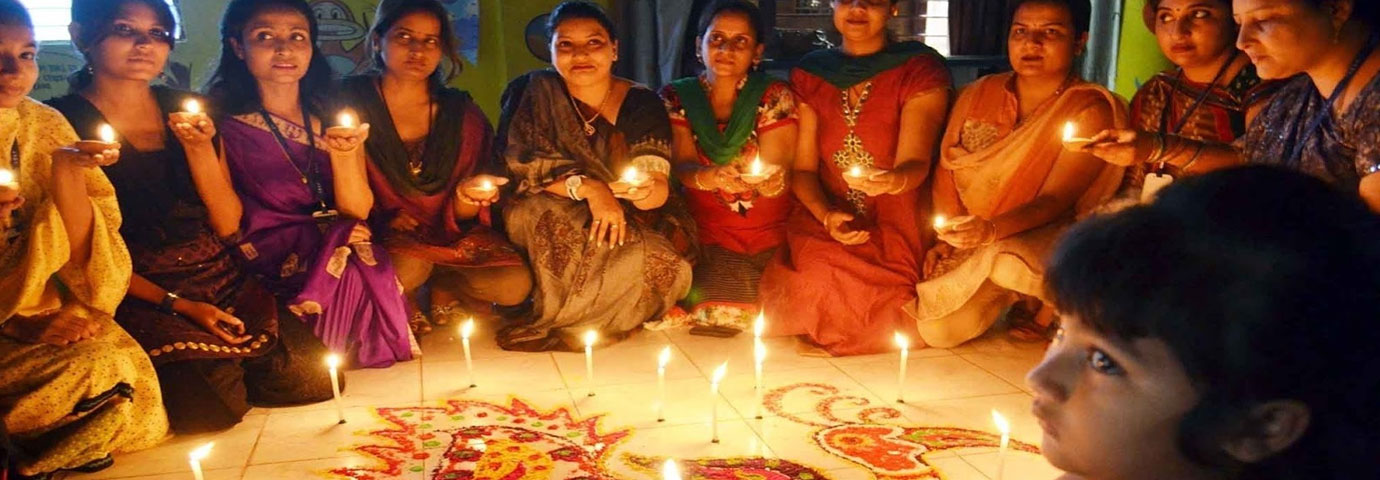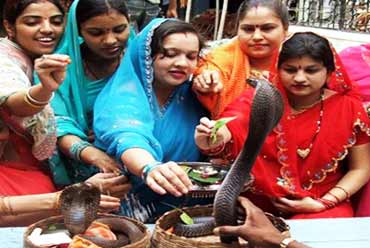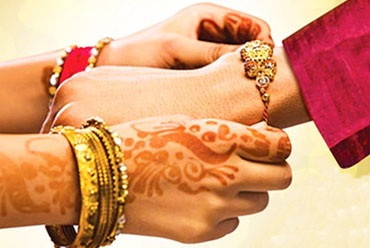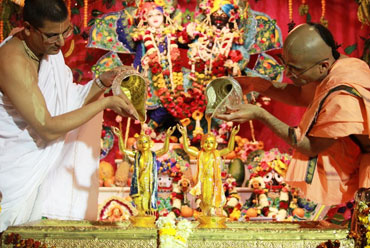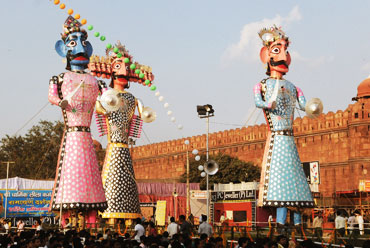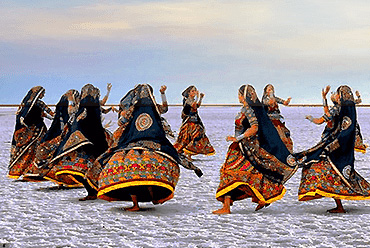The festival of lamps, Diwali, is an ancient tradition that is celebrated through the length and breadth of India in one manner or another. The festival has been celebrated for ages and grows in fascination by the year. Everyone enjoys the goodies, the glitter and glamour, and the endless zest for living that suddenly grips people around this time. Nevertheless, there is much more to Diwali than feasting and merrymaking. Diwali is a hallowed tradition, not to be put in the shade by the lights.
Diwali symbolizes the victory of light over darkness. Celebrated joyously all over the country, it is also a festival of wealth and prosperity.
Time Of The Year
Diwali generally in 2025 falls in the month October on 21st Date.. The date in the English calendar varies as it is celebrated according to the Indian calendar.
Legends
The legends behind the festival are as varied as the manner of its celebration, but common to all of them is the theme of the triumph of good over evil. One such legend, the most popular one, is about a demon named Narkasura who managed to acquire such awesome powers that he began to terrorize the three worlds; his defeat and death at the hands of Krishna is celebrated as Diwali, and the day preceding the new moon in the months of Ashwin-Kartik in the Hindu calendar is known as Naraka Chaturdasi.
Another legend followed in Karnataka is that of an emperor named Bali who had become all-powerful and a threat to the peace of the universe. God is said to have come to earth in the form of a diminutive Brahmin, Vamana, and presenting himself before the mighty Bali asked for "as much land as three of my footsteps would cover." No king could refuse a Brahmin's appeal for charity, and Bali readily granted what seemed to him a trifling request. Whereupon the diminutive Brahmin resumed his all-pervasive, omnipresent form and, covering the heavens with one foot and the world below with another, asked where he should place his foot for the third step. Bali bowed before him and offered his own head for him to place his foot on, and was pressed underfoot. This victory is observed on the day of the new moon (Amavasya) when the month of Ashwin (October-November) makes way for Kartik.
For the people in north India, the festival commemorates the joyous return of Rama to his kingdom of Ayodhya, after 14 years of exile in the forests. For the business community, particularly in the western regions of Gujarat and upper India, Diwali is a festival devoted to Lakshmi, the goddess of wealth and prosperity. In fact, the new accounting year begins with Diwali and the tradition is still followed by opening new accounting ledgers on this festive day.
Traditionally on Diwali night, Ganesh shares the altar with Lakshmi. Ganesh is the god of good beginnings and the fabled remover of obstacles. In the Hindu pantheon, the two are unrelated, Ganesh being the son of Shiva and Parvati. However, between them, placed side by side, Lakshmi and Ganesh hold out promise of a year of fulfillment, free from want. Since cow's milk is food for the gods, Lakshmi is said to be partial to laddoos made from thickened cow's milk, rock sugar and powdered cardamom. On the night of Diwali, these form an offering choice.
Rituals
Diwali is supposed to be a corruption of the word Deepavali, the literal meaning of which in Sanskrit is 'a row of lamps.' Filling little clay lamps with oil and wick and lighting them in rows all over the house is a tradition that is popular in most regions of the country. In the north, most communities observe the custom of lighting lamps. However, in the south, the custom of lighting baked earthen lamps is not so much part of this festival as it is of the Karthikai celebrations a fortnight later. The lights signify a welcome to prosperity in the form of Lakshmi, and the fireworks are supposed to scare away evil spirits. For the grown-ups, there is also a custom of indulging in gambling during Diwali. It is all in fun, though, in a spirit of light-hearted revelry, and merrymaking. In north India, people celebrate Choti Diwali and Bari Diwali (literally, small Diwali and big Diwali) on successive days, and exchange trays of sweets. Diwali is a time for shopping, whether for gifts or for adding durable items to one's own household. The market soars-everything from saffron to silver and spices to silks. Yet, symbolic purchases are to be made as part of tradition during Diwali.
Celebrations
Diwali is a truly national festival that literally puts a sparkle into each and every home, whether it is a palatial mansion or a poor man's hut. Only a family in mourning lets Diwali go by without sweets and lights. Although Diwali is celebrated for two days, the celebrations actually stretch over nearly five days. For that matter, Diwali begins to herald itself 10 days earlier, with the deafening sounds of crackers burst as "appetizers" by impatient youngsters unable to wait till the actual day! More than any other festival, Diwali is an occasion for children-from the youngest toddler looking on with fascination while older siblings hold sparklers in their hands, to the daredevil adolescents who get a thrill out of lighting the fuse of ear-splitting bombs with their bare hands, or letting off "rockets" on broomsticks, just as their fuses ignite to lift them into the sky like space rockets leaving a trail of flame behind.
Regional Celebrations
In Punjab, the day following Diwali is known as tikka when sisters make a paste with saffron and rice and place an auspicious mark on their brother's foreheads as a symbolic gesture to ward off all harm. Likewise, on the second day of the month of Kartik, the people of Maharashtra exchange gifts. In Maharashtra, it is the thirteenth day of Ashwin, the trayodasi, that is observed as a festival commemorating a young prince whom Yama, the God of Death, had claimed four days after his marriage. Filled, however, with compassion for the luckless youth, the legend goes, Yama promised that those who observed the day would be spared untimely death-and so the lamps that are lit to mark the festival are placed facing south, unlike on other festive days, because south is the direction mythologically assigned to Yama.
For the Bengali and Oriya communities in the east, Diwali means Kali puja (worship of Kali, the aggressive manifestation of Shakti or the all-powerful female force). There are in fact legends that trace Diwali observances to the entire Asian belt including Thailand and China.

